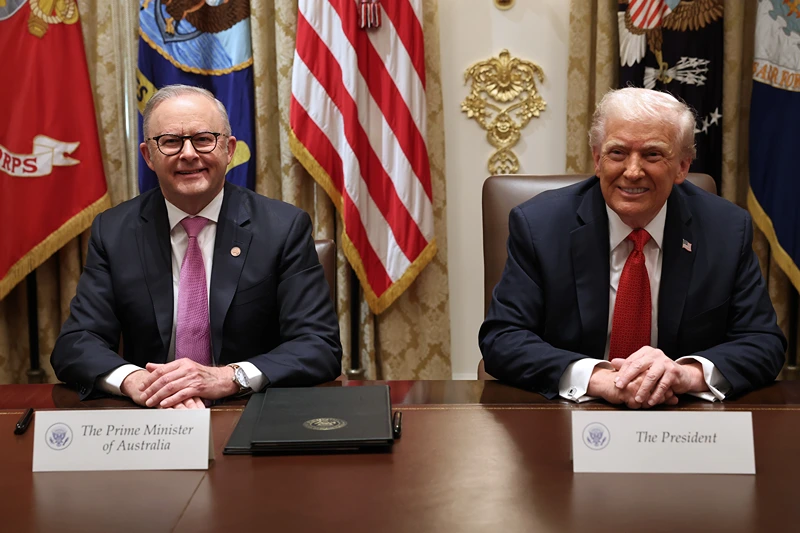
OAN Staff Blake Wolf
10:56 AM – Monday, October 20, 2025
President Donald Trump announced the signing of a rare earth mineral deal with Australia at the start of the week, after China restricted its mineral exports amidst the ongoing trade war with the United States.
On Monday, President Donald Trump met with Australian Prime Minister Anthony Albanese at the White House, explaining that the United States will now have access to Australia’s “critical-minerals and rare-earths,” which had “been negotiated over a period of four or five months,” according to Trump.
“We got it done just in time for the visit,” Trump stated. “And we work together very much on rare earths, critical minerals and lots of other things, and we’ve had a very good relationship. We’ve been working on that for quite a while.”
China’s recent export controls on certain rare-earth elements and critical minerals give the United States a bargaining chip in its trade and strategic competition with Beijing, since the U.S. (and its defense, tech and clean-energy industries) has for years been significantly reliant on Chinese-dominated supply chains for minerals, processing, and downstream components used in advanced defense systems, electric vehicles, consumer electronics and other high-tech applications.
President Trump stated that within a year “we’ll have so [many] critical minerals and rare earths that you won’t know what to do with them.” The president went on to highlight the United States’ strong relationship with Australia, stating that “we never had any doubts.”
Albanese congratulated Trump on his efforts in relation to brokering the ceasefire deal in the Middle East, and he thanked the U.S. president for showing him and his delegation around the “new and improved Oval Office.”
Albanese also revealed that the United States and Australia will initially contribute $1 billion each within the next six months toward the “initial projects” under the deal.
The Monday meeting reportedly included discussions about the AUKUS trilateral security pact, between the United States, Australia and the United Kingdom. Under the pact, Australia is set to acquire at least three U.S. Virginia-class nuclear-powered submarines, with an option to acquire up to two more, as a bridge to a later jointly-designed Australian/U.K. class of nuclear-powered attack submarines.
After the first submarines are purchased, the submarines will be designed and built specifically for the United Kingdom and Australian Navies in an attempt to counter China’s growing presence in the Indo-Pacific region.
The deal was previously questioned after officials in the Trump administration announced plans to review whether it fits into the president’s “America First” agenda. Despite previous comments suggesting the Trump administration was questioning the AUKUS deal, President Trump announced that the United States is now moving “full steam ahead.”
Trump went on to say that he believes the AUKUS nuclear-powered submarine deal further deters China, adding that he also doesn’t believe the CCP will take any aggressive action.
“We’re going to get along great with China.”
Additionally, President Trump emphasized that China needs to make a trade deal with the United States — unless they wish to pay “157 percent in tariffs.”
“We have a tremendous power, and that’s the power of tariff, and I think that China will come to the table and make a very fair deal, because if they don’t they’re going to be paying us 157 percent in tariffs,” Trump stated.
“It’s not sustainable, but that’s what the number is,” he added. “It’s probably not, you know, it could stand. But they forced me to do that.”
Stay informed! Receive breaking news alerts directly to your inbox for free. Subscribe here. https://www.oann.com/alerts
What do YOU think? Click here to jump to the comments!
Sponsored Content Below

